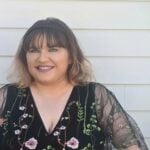Ahead of an afternoon sit-in at the Statehouse on June 6, a protester grabbed a megaphone and stood on a bench, overlooking a crowd of hundreds of people. Pulling down his face mask, he told the crowd of racial disparities in the fight against COVID-19, and why he — an African American man — was out protesting during a global pandemic.
“We’re risking our lives to be out here,” he told the crowd. “That’s how important this is.”
In Marion County, African Americans make up 28.3% of the population. However, 33% of COVID-19-related deaths in the county are Black people. While the exact reason COVID-19 is hitting the Black community in Indianapolis — and around the country — harder is still unknown, many people, including the city-county council in Proposal 182, cite inequities in health care as a factor.
Dr. Curtis Wright, president and CEO of Eskenazi Medical Group, said while there are ongoing studies looking to determine if there is a genetic factor at play, socioeconomic factors — such as employment and access to health care — provide a much clearer explanation for the disparities.
Regardless of why Black Hoosiers are more likely to die of COVID-19, one thing is clear: protesting in the middle of a pandemic is risky.
However, so is being Black, according to activist NiSean Jones.
“It all just goes to say that, as a Black person in America, I risk my life everyday, regardless of COVID-19,” Jones, 22, said. “I would rather risk my life and fight for something that I know will be beneficial in the long run during a pandemic than stay home because of a disease I can be treated for. You can’t treat yourself for racism. You just have to fight it on the front lines.”
Jones is a co-founder of the local group Black Out For Black Lives and has been out protesting and organizing for the past several weeks. Throughout the demonstrations people have been passing out masks and hand sanitizer, and on June 6, the Indiana State Department of Health offered free COVID-19 testing in the Statehouse parking lot.
“I’ve been out here all week,” said one woman waiting to be tested. “So, I figured I might as well get tested.”
Despite the precautions being taken by many protesters — wearing masks and washing their hands frequently — many involved in the protests are prepared to be blamed for any potential COVID-19 spikes that may arise in the future. Wright, however, thinks there’s more to a spike than a few weeks of protests.
“I think any activity that brings people in close proximity without the precaution measures puts people at risk for COVID-19,” Wright said. “I think that protest activities in general are in open air which we know has reduced transmission rates. … Plenty of folks are also out, due to the reopening of businesses, socializing without masks on and not socially distancing.”
From Jones’ perspective, the fears these protests will result in a COVID-19 spike stem from an issue with the protester’s message.
“People weren’t worried about a second wave when they reopened the economy to appease corporations,” Jones said. “So why are they worried about it when we’re being vocal about an assault on Black lives?”
Contact staff writer Breanna Cooper at 317-762-7848. Follow her on Twitter @BreannaNCooper.








